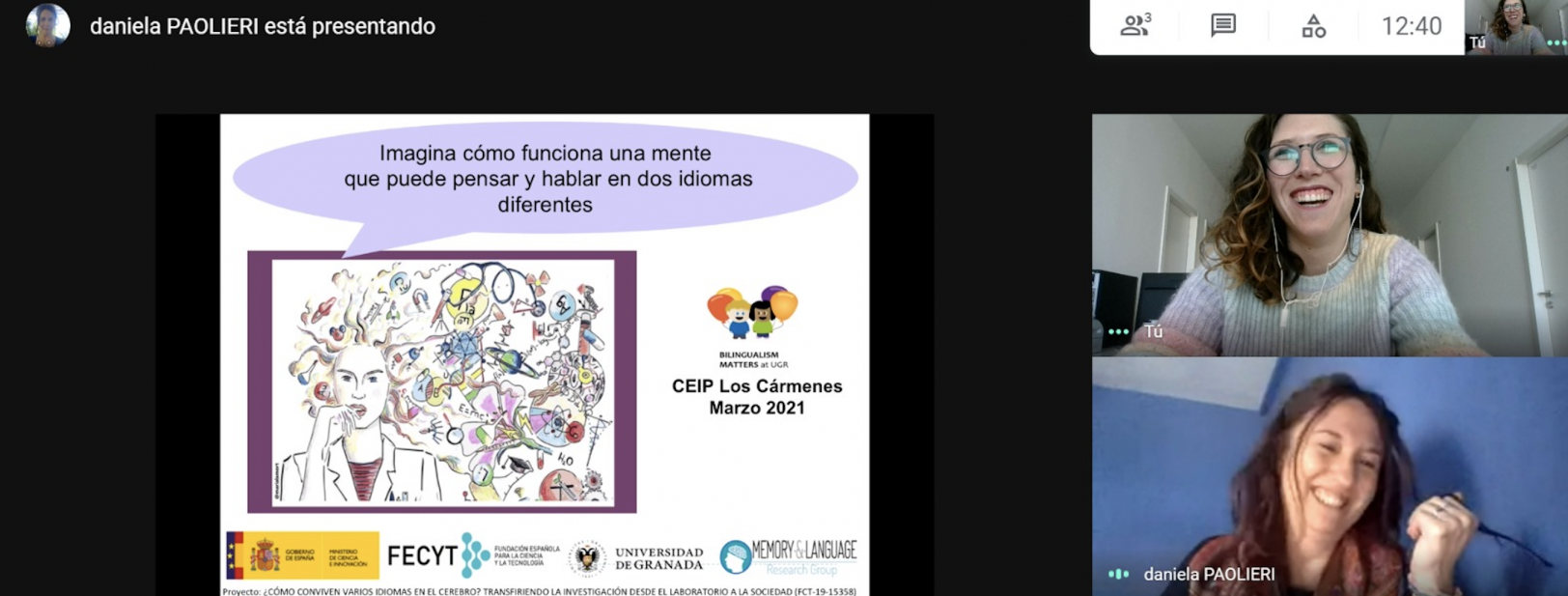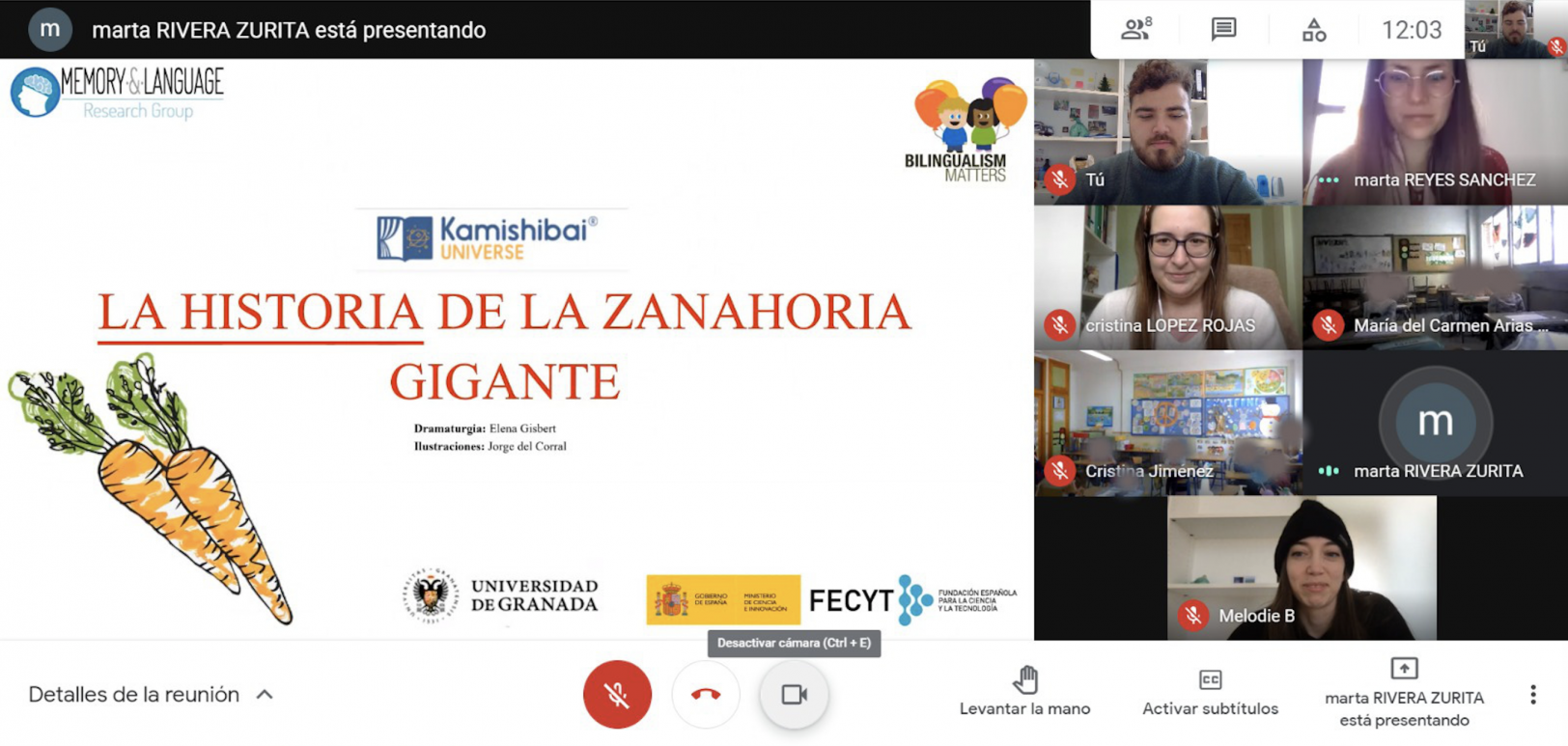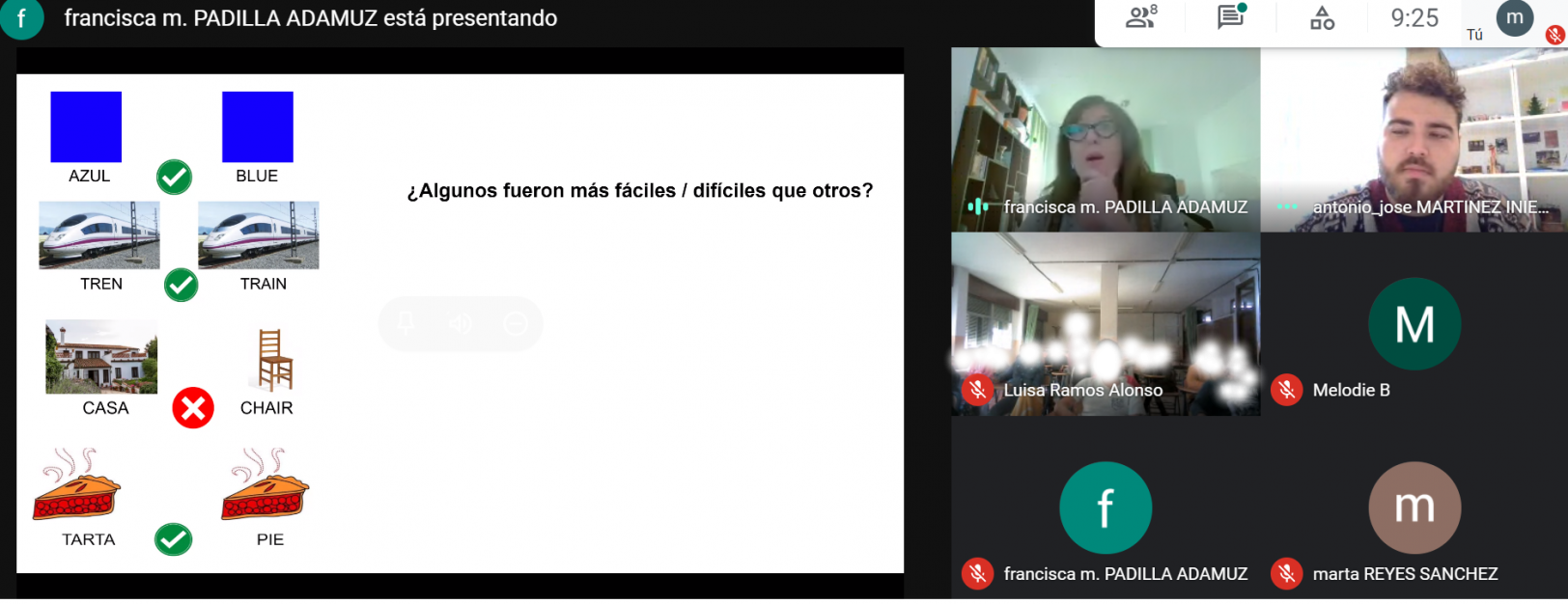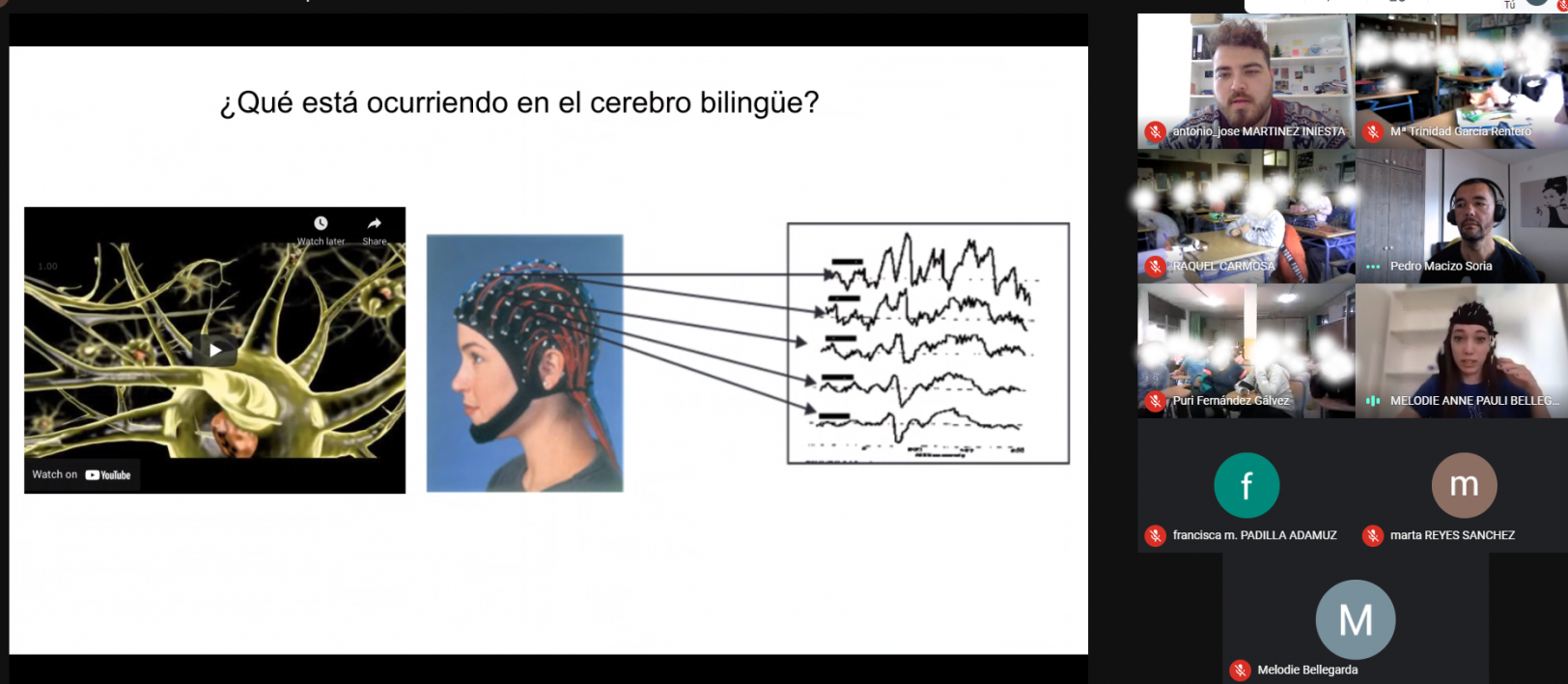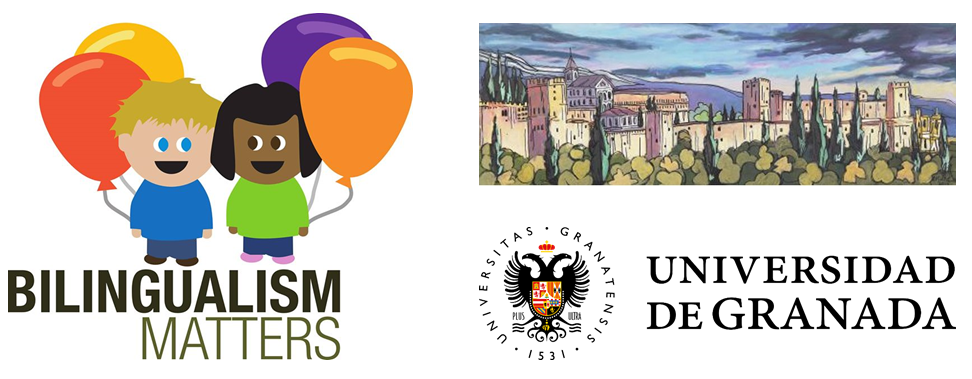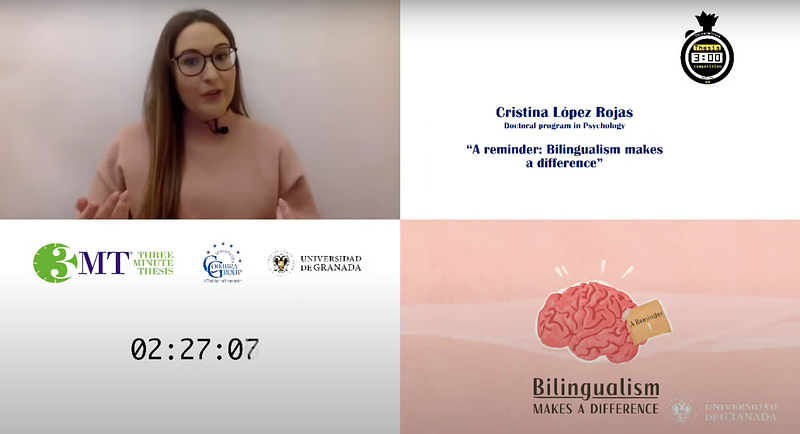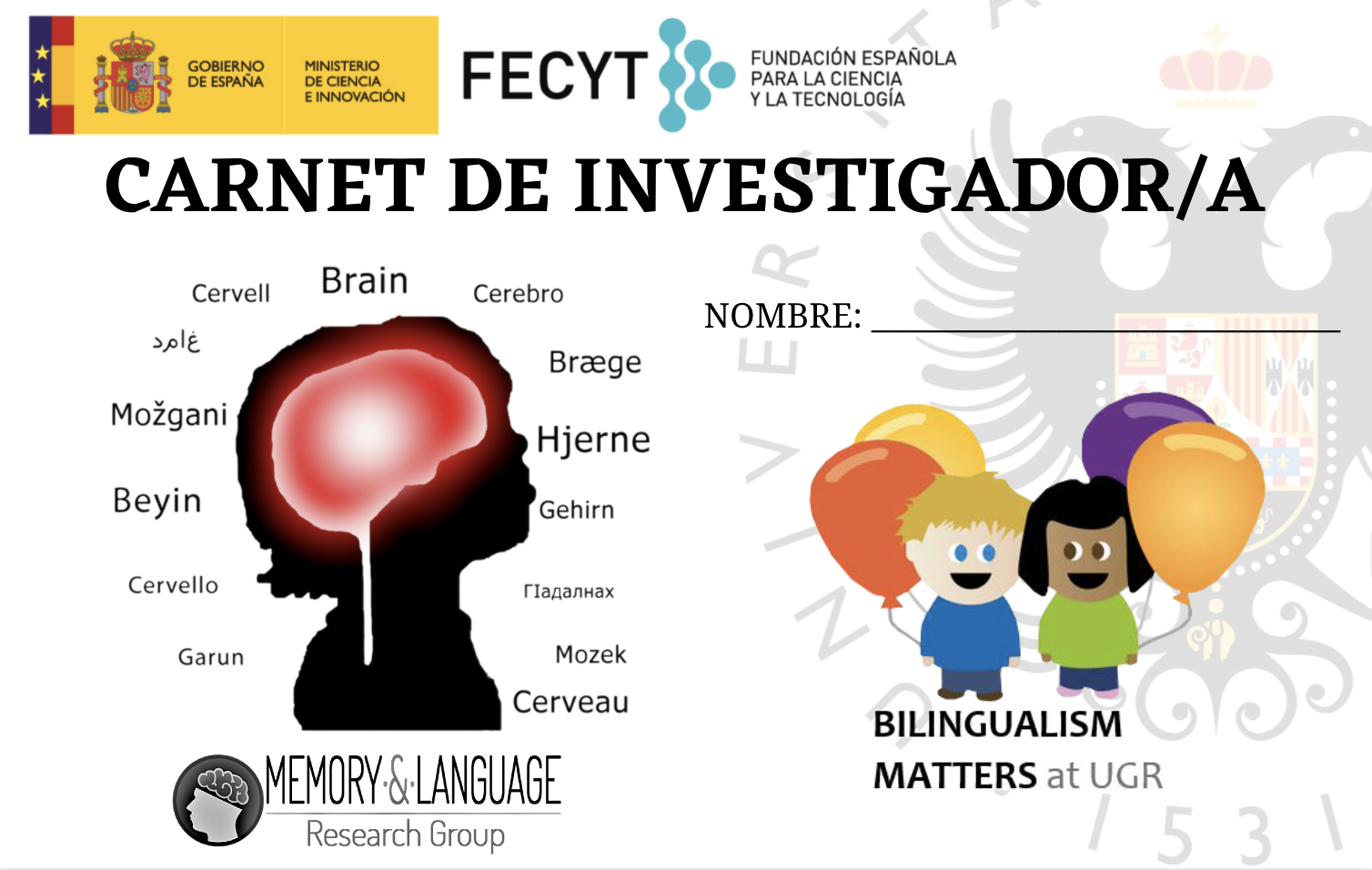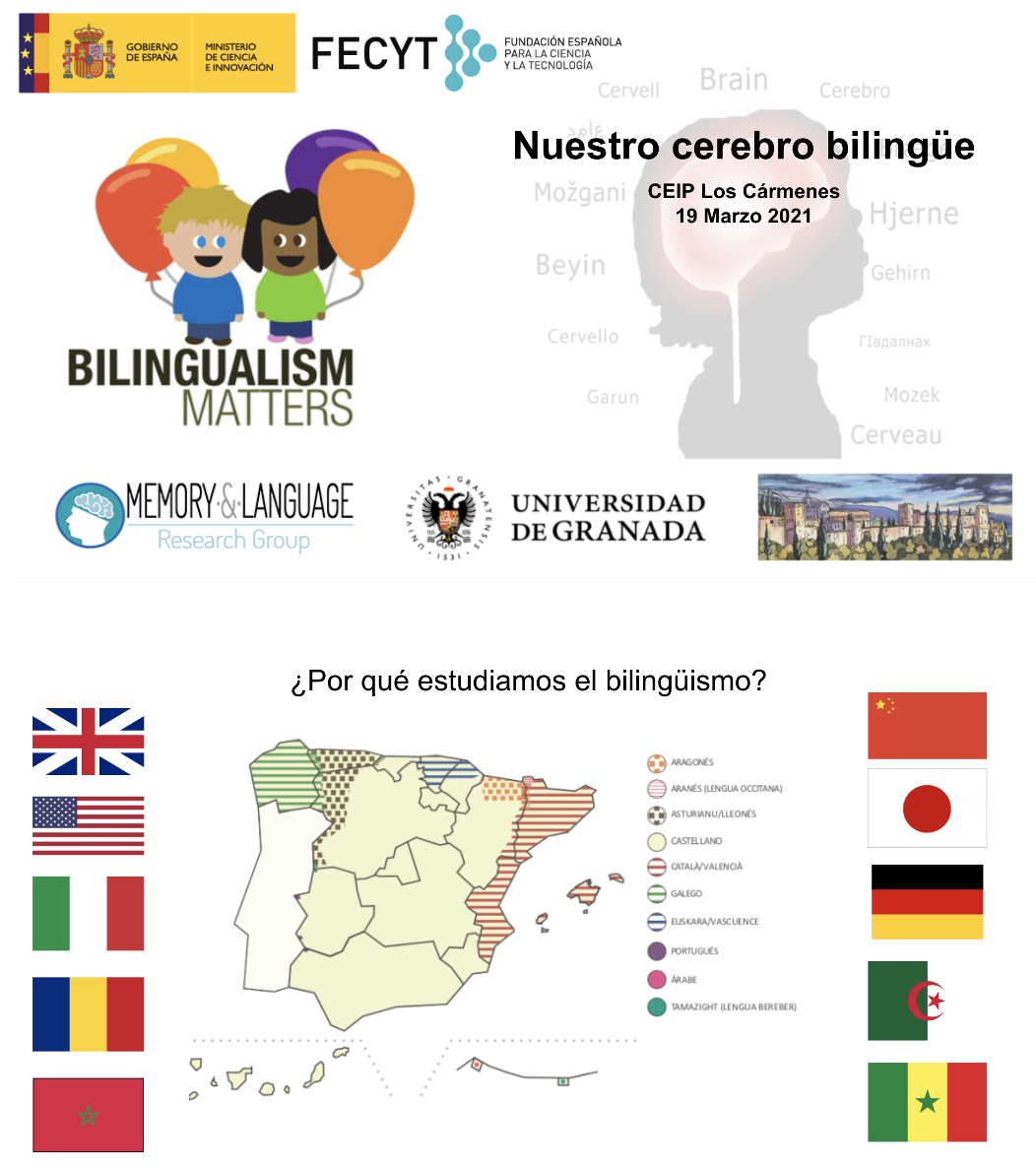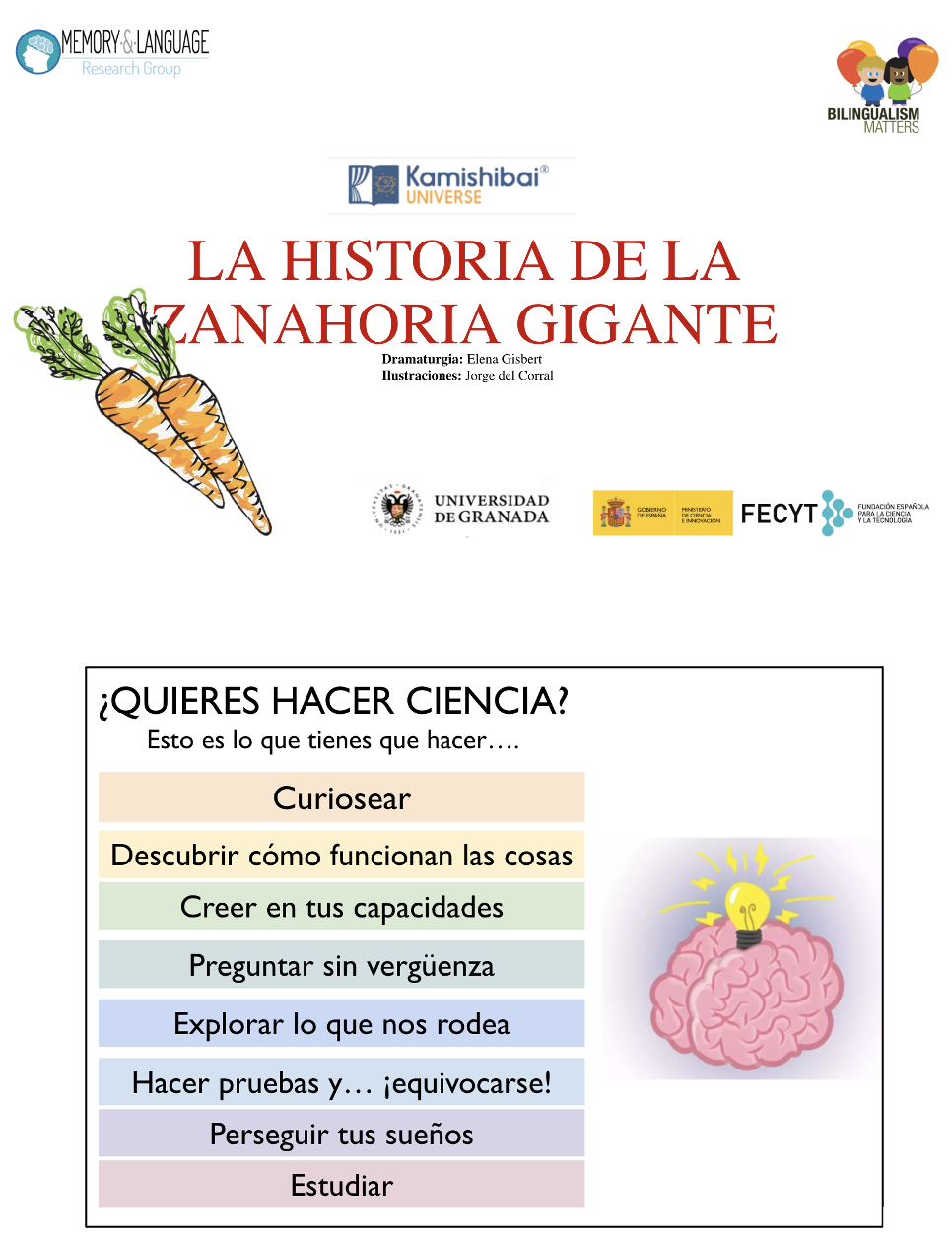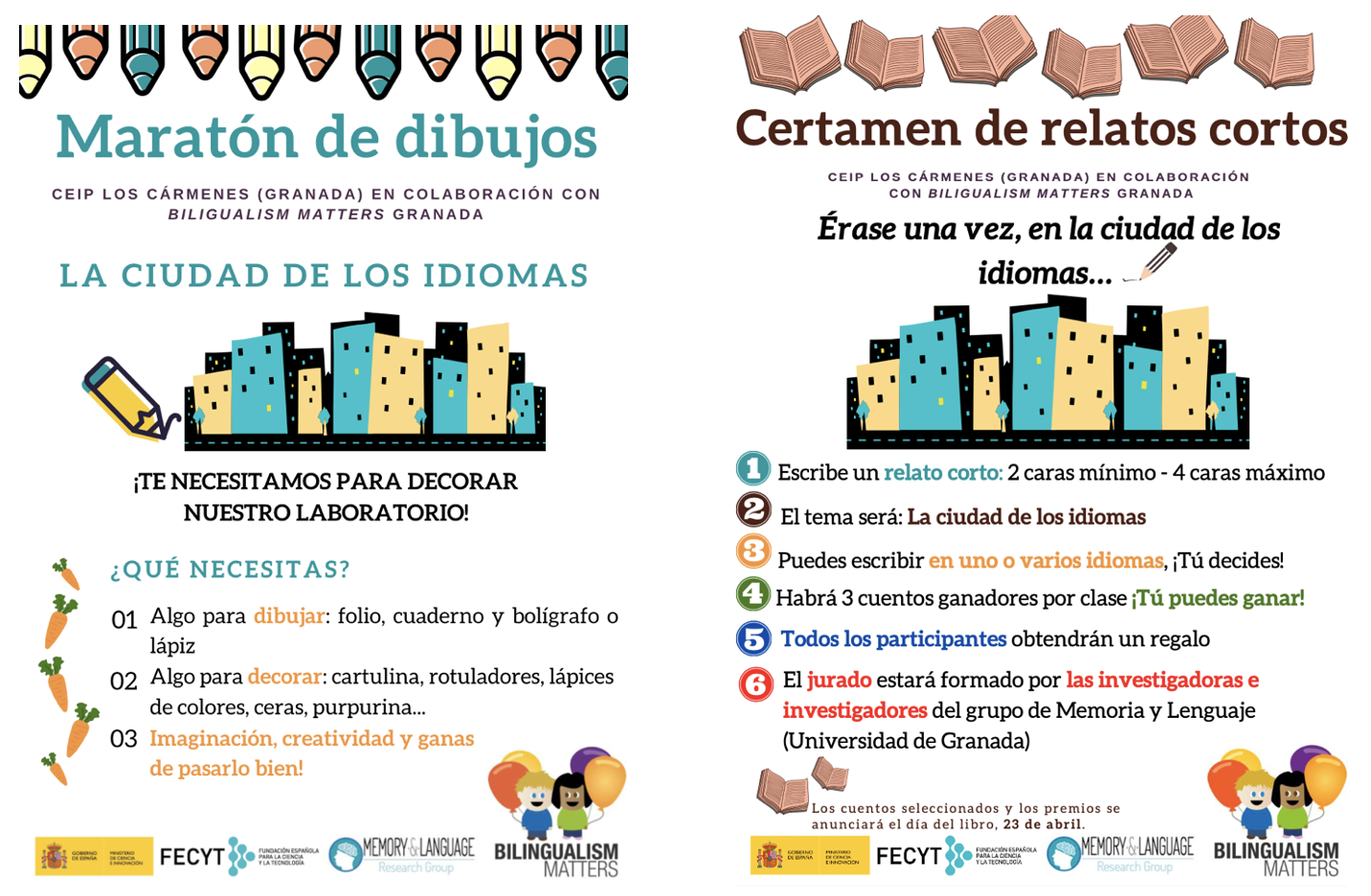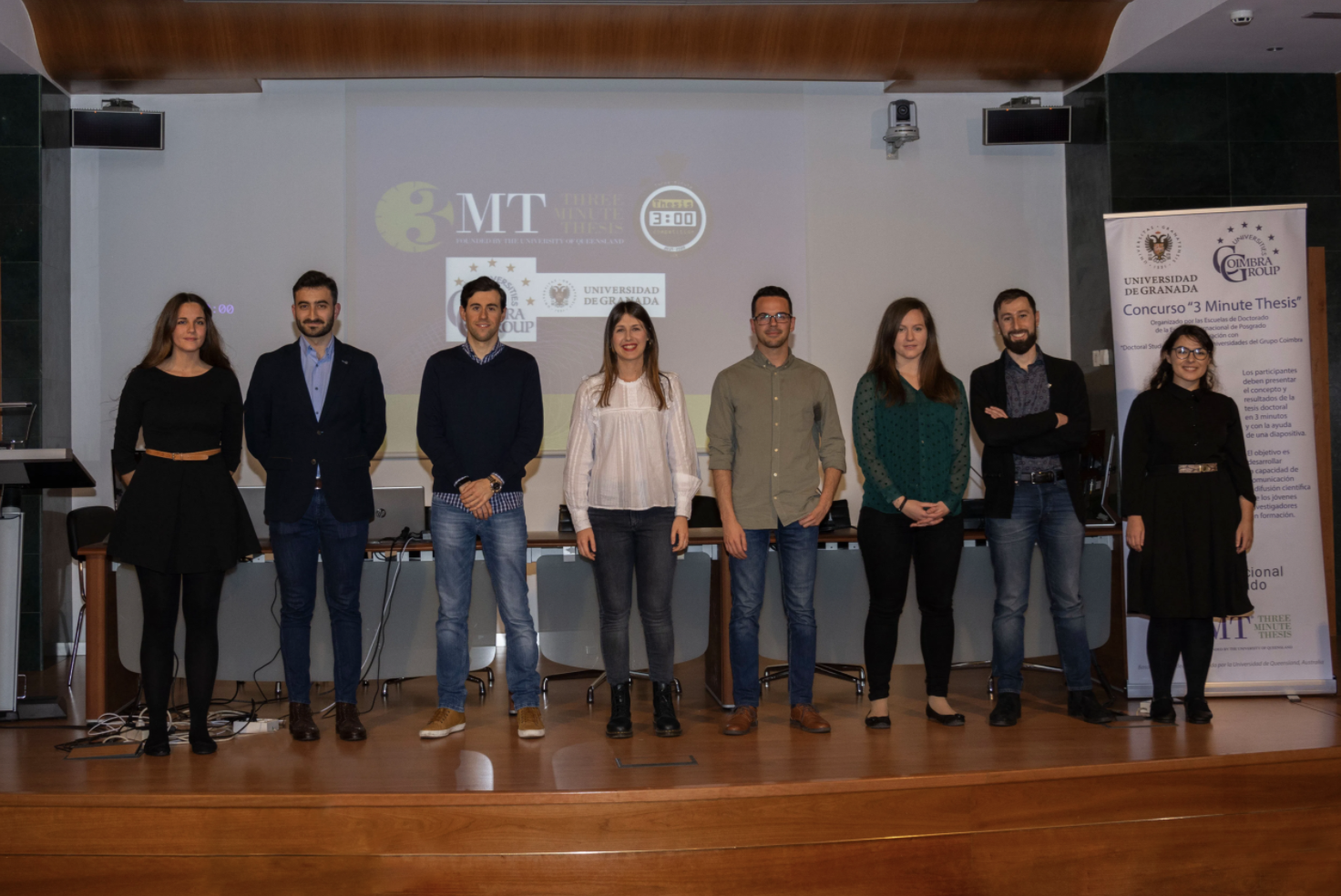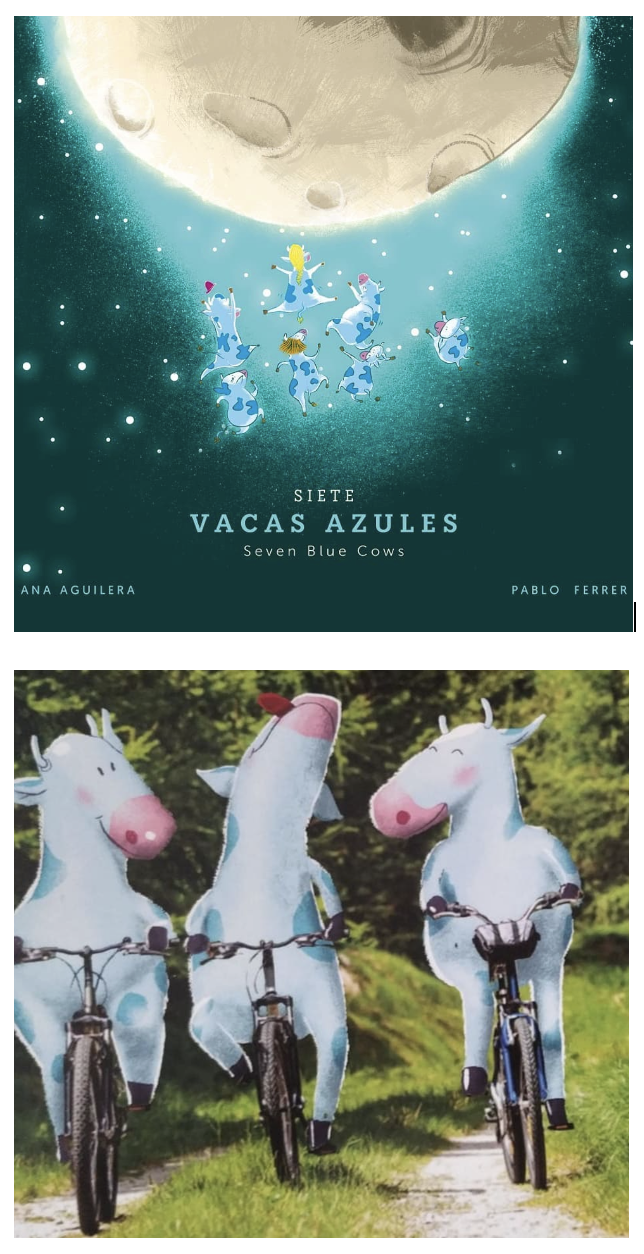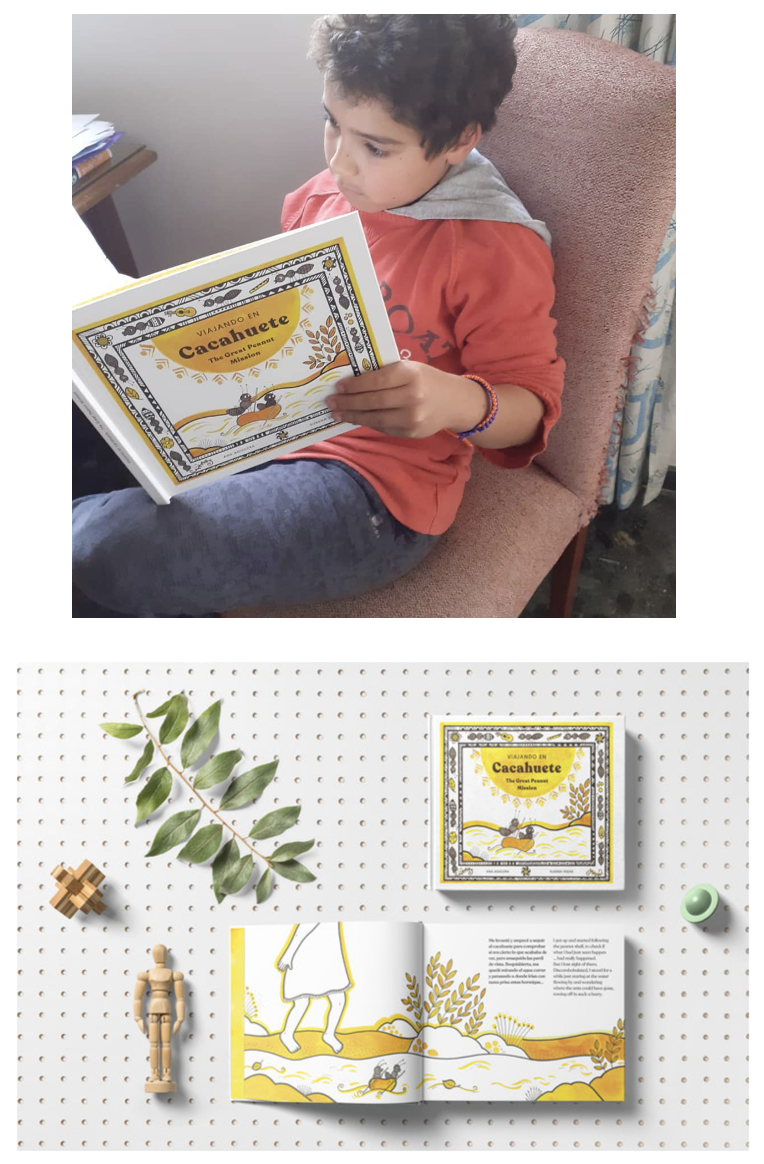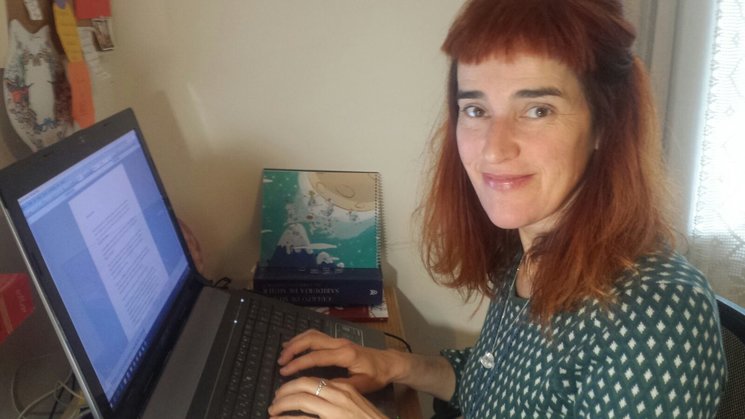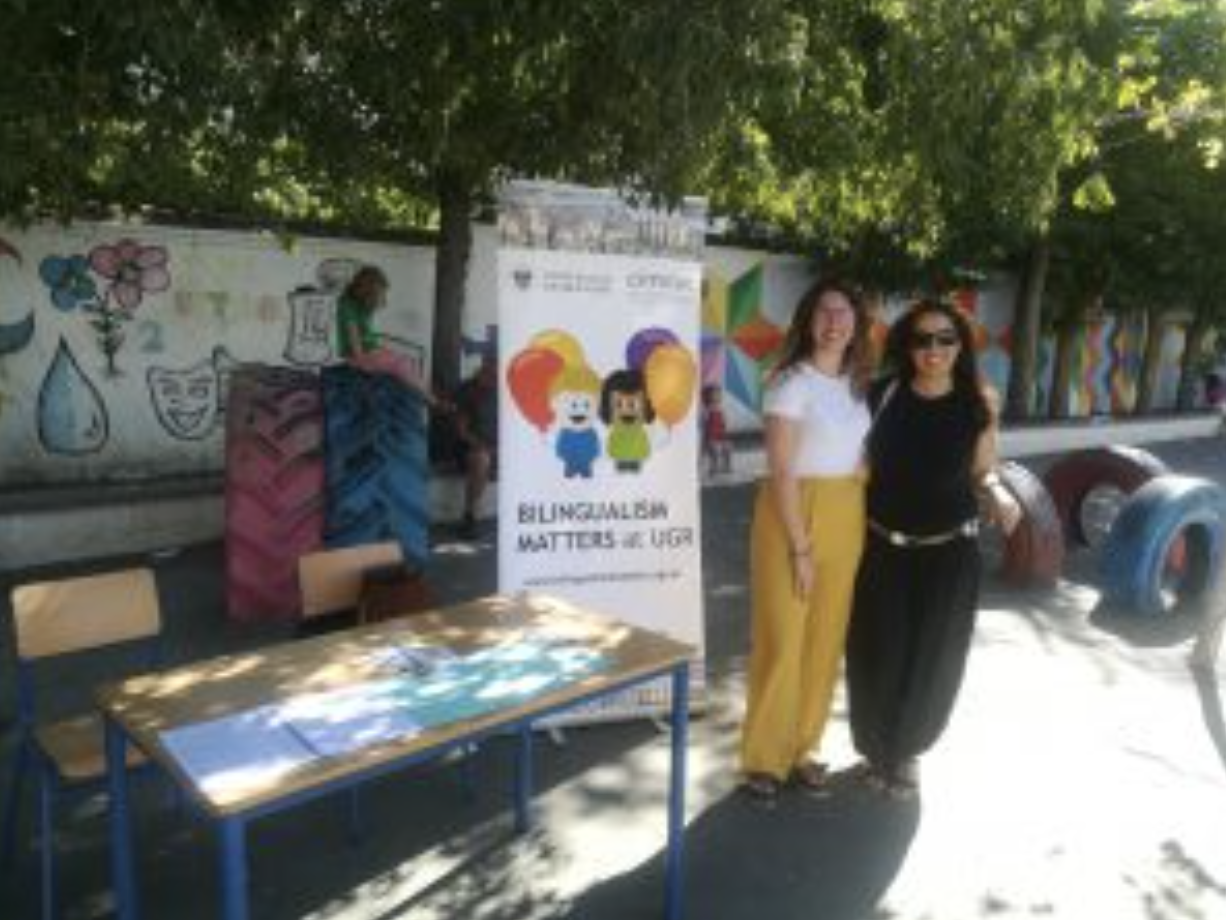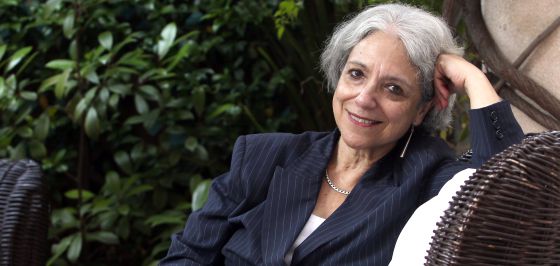Nuestro cerebro bilingüe // Our bilingual brain
por Marta Reyes Sánchez
“Imagina cómo funciona una mente que puede pensar y hablar en dos idiomas diferentes.” Así inauguramos la serie de talleres que impartimos en CEIP Los Cármenes la semana pasada. Han sido unos encuentros virtuales en la que investigadoras e investigadores del equipo de Bilingualism Matters UGR han hablado sobre cerebro, bilingüismo y ciencia. Estas actividades se llevan a cabo dentro del proyecto “¿Cómo conviven dos idiomas en el cerebro? Transfiriendo la investigación desde el laboratorio a la sociedad”, financiado por el FECYT y el Ministerio de Ciencia e Innovación (FCT-19-15358).
“Imagine how a brain that can think and speak in 2 languages functions.” This is how we inaugurated the series of workshops that we gave at Los Cármenes elementary school last week. These were virtual meetings in which researchers from the Bilingualism Matters UGR team talked about brain, bilingualism and science. These activities were carried out within the project “How do languages co-exist in the brain? Relaying evidence from the laboratory to our society”, funded by the Spanish Foundation of Science and Technology and the Ministry of Science and Innovation (FCT-19-15358).
Las actividades han ido dirigidas al alumnado de 5 años y 1º de EPO, por un lado, y a 5º y 6º de EPO, por otro. En ambos casos, el tema central ha sido qué es hacer ciencia y qué significa ser bilingüe. Aun con las limitaciones de interacción, el encuentro virtual ha transcurrido por videoconferencia. El alumnado ha podido participar activamente realizando pequeños experimentos y planteando preguntas y cuestiones súper interesantes.
The activities were aimed at a younger group of kindergarteners and 1st graders and an older group of 5th and 6th graders. In both cases, the central theme was the meaning of “doing science” and the meaning of bilingualism. Because we are still limited in our physical interactions here in Granada, the meeting took place virtually online via videoconference. The students were able to actively participate by performing small experiments and asking very interesting questions.
“¿Todos los idiomas son igual de importantes?”, “¿para hacer ciencia hay que saber idiomas?” Estas son algunas de las dudas que nos trasladaron los pequeños. Aprovechamos la ocasión para poner en valor la diversidad cultural y lingüística, así como las ventajas que confiere conocer idiomas, tanto a nivel social como personal y académico. Esto se verá reflejado en el maratón de dibujos y el certamen de cuentos organizados para cada grupo de edad respectivamente.
“Are all languages equally important?”, “Do you have to know languages to do science?” These are some of the questions that the children asked us. We took the opportunity to highlight the value of cultural and linguistic diversity, as well as the advantages of knowing languages, both socially, personally, and academically. This will be reflected in the drawing and the storytelling contests organized for each age group.
Sin duda, fue un encuentro enriquecedor en el que expusimos la rigurosidad del método científico y la importancia de aplicarlo en el ámbito del bilingüismo. Finalmente, también reivindicamos el papel de la mujer en la ciencia, que gracias a la implicación de nuestras investigadoras, quedó patente durante todas las actividades.
It was without a doubt an enriching experience which allowed us to speak about the scientific method and the importance of applying it in the field of bilingualism. Finally, we also defended the role of women in science, which, thanks to the involvement of our researchers, was evident during all the activities.
Si quieres estar al día de estas y otras noticas relacionadas con nuestro trabajo, recordad, que podéis seguirnos en nuestras redes sociales (Twitter: @BMatUGR, Facebook: BilingualismMatters Ugr).
If you want to be up to date on our activities, please go to our Twitter and Facebook pages to follow us!
